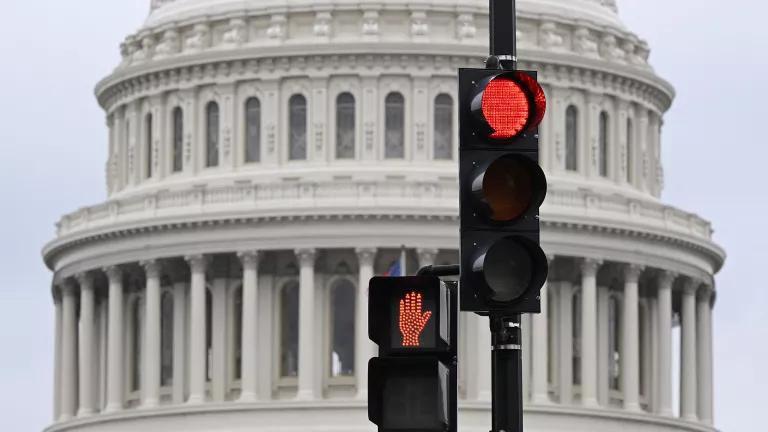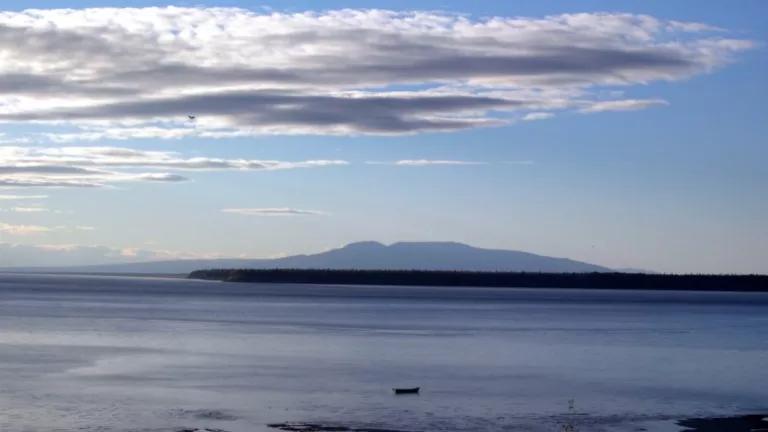Congress and Trump Curtail Public Input on Public Lands
Eliminating the public’s right to participate in how public lands are managed.
This week in D.C., Congressional Republicans, in alignment with the wishes of the oil and gas industry, move again to undermine one America’s best ideas: public lands. Specifically, the House Natural Resources Committee are marking up a set of bills tomorrow that would effectively eliminate the public’s right to participate in most decisions regarding public land use for oil and gas extraction. These bills also align with a drastic new policy from the Bureau of Land Management (BLM) that significantly curtails public participation. These actions are the products of a persistent effort by the oil and gas industry to bulldoze any federal impediments to maximal profit, whether endangered species habitat, safeguards against catastrophic accidents, or the right of Americans to be involved in the management of our shared natural heritage.
Our ability as citizens to participate in federal land management decisions and other federally-linked projects that could impact the environment is one the foundations of the National Environmental Policy Act (NEPA). Signed into law by President Nixon in 1970, NEPA is a bedrock environmental law that requires federal decision-making to be conducted deliberately and thoughtfully by taking stock of a project’s potential environmental and social impacts, as well as legal conflicts, using the best available science and considering the positions of key stakeholders and the general public while ensuring the public is informed of federal actions. It establishes processes that require time and expertise to complete, which irks the oil and gas industry, but ensures the U.S. government uses the best information available. In addition to NEPA, in 1976 President Ford signed the Federal Land Policy and Management Act, adding additional measures enshrining the public’s right to participate in how public lands are governed.
But four pieces of legislation being marked-up tomorrow would keep the public from engaging in many impactful federal land management decisions regarding oil and gas drilling. These bills had their first Congressional hearings on June 6th, where a number of witnesses for the majority championed broad exemptions from NEPA. Coincidentally, on the same day across the country in Albuquerque, a leading oil and gas industry representative with the Western Energy Alliance spoke (see pgs. 10 - 11) at the Interior Department’s Royalty Policy Committee Meeting, recommending BLM issue agency guidance to greatly expand the use of categorial exclusions (CXs) for oil and gas activities, the same type of waivers from NEPA Congress was considering legislating. And if that wasn’t enough of a coincidence, BLM issued an Information Bulletin—no quick task—adopting Western Energy Alliance’s recommendations the same afternoon.
The four bills being marked up tomorrow would strengthen and calcify the recommendations offered by the Western Energy Alliance and adopted with remarkable expedience by the Interior Department. Given how closely all of these processes neatly align, it would be foolish not to construe that the Trump administration and Republican leaders of the House Natural Resource Committee are working in concert with the oil and gas industry to advance these measures designed to eliminate the public’s right to participate on how public lands are managed.
The NEPA elements these policies attack are in place to ensure the lands we, as Americans, all own are managed with our interests in mind. By maximizing the data available to civil servants, they help shepherd good decisions—decisions that could impact a community or an ecosystem for decades—setting a global model for good governance and resource management. But such principles are anathematic to the oil and gas industry, which has powerful allies all too ready to help. Those who care about sustainable use of our natural heritage should stand against these regressive policies.
The bills the House’s Natural Resources Committee is considering tomorrow each take a distinct whack in dismantling key aspects of NEPA:
- H.R. 6087 (Rep. Liz Cheney of Wyoming) – Authorizes the Secretary of the Interior to attach a highly burdensome fee for public protests for oil and gas lease sales and other agency actions. The protest process is designed to ensure the public can point out errors in the government’s reasoning and give it a chance to correct. Protest filings that approach a thousand pages have occurred, given that unfortunately the BLM have often failed to include critical data. A thousand-page protest over one lease parcel would incur a fee of over $5,000 under Rep. Cheney’s bill, a.k.a. the Removing Barriers to Energy Independence Act. Clearly, this bill would have a chilling effect on a valuable element of the public input process. But it would also have the perverse incentive to encourage the agency to issue incomplete decision records, put the financial onus on the public to correct the record.
- H.R. 6106 (Rep. Stevan Pearce of New Mexico) – Expands the use of CXs in the Interior Department’s oil and gas leasing program. Rep. Pearce’s Common Sense Permitting Act would arbitrarily expand CX applicability, and, for potentially impactful projects, eliminate the public’s right to participate in the NEPA review as well as BLM’s discretionary ability to implement solutions to avoid needless resource use conflicts.
- H.R. 6088 (Rep. John R. Curtis of Utah) – Severely hamstrings the Interior Department’s ability to review applications to drill oil and gas wells on public lands. This is often the only juncture at which the government looks at specific sites closely, a requisite step for BLM to adequately evaluate—and prevent—harm from a new well and associated activities.
- H.R. 6107 (Rep. Stevan Pearce of New Mexico) – Eliminates federal oversight of oil and gas activities conducted on non-Federal surface estate to access subsurface mineral estate that is less than 50 percent Federally owned. Even if we are minority owners, those mineral resources still belong in-part to all Americans—the federal government should be allowed to meet its responsibility to manage them in trust for the public interest.
In addition, to the legislation, BLM’s Information Bulletin (IB)IB 2018-61 hews to the same theme, effectively constructing a flow chart for avoiding NEPA analysis of oil and gas leasing and development decisions. Between this policy and a previously updated leasing policy (see Instruction Memorandum 2018-34), federal land managers are now under instruction to:
- Preclude public input and skip rigorous environmental review for the majority of oil and gas activities on our public lands. This policy has land managers relying on broad Land Use Plans to check the NEPA box, despite their inadequacy for identifying site-specific resource or human conflicts.
- Emphasize the application and issuance of categorical exclusions (versus applying a more rigorous and transparent review process).
- Stop reviewing certain CXs for circumstances that should automatically preclude their use under law. For instance, even if a project might endanger critical lands or endangered species, land managers are encouraged to look the other way.
- Expand use of Master Development Plans to evaluate and approve multiple applications to drill, again foregoing crucial site-specific analysis. And it encourages civil servants to actively avoid opening public comment periods unless they are unambiguously required by law.
- Emphasis on the issuance of applications to drill even without a requisite site inspection, which is critical to verify whether wildlife and land resources might be unduly impacted. Hence, land managers must rely either on inadequate data and/or the word of the oil and gas applicant.




